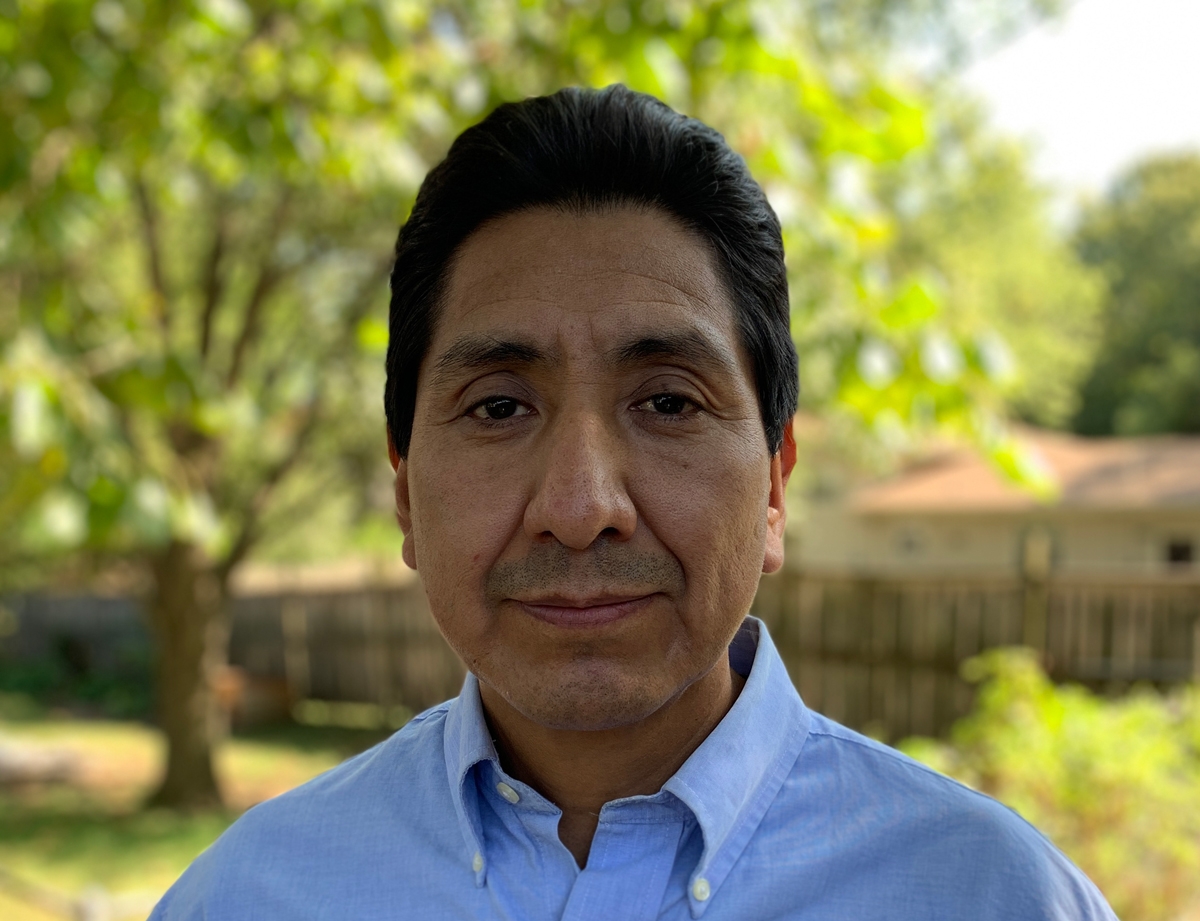Victor Maqque, a Native Quechua scholar with academic expertise in Latin American history and Andean studies, has been selected as operations manager for the Latin American Sustainability Initiative, coordinated within the University of Oklahoma’s Institute for Resilient Environmental and Energy Systems. The appointment is effective Oct. 1.
The Latin American Sustainability Initiative, a newly created program within the institute, will expand OU’s research, outreach and educational initiatives that address the interconnected environmental, economic and societal challenges to sustainable development across Latin America. The initiative supports OU’s strategic plan as a cross-cutting program within the Office of the Vice President for Research and Partnerships.
“Victor’s expertise on the history, culture, languages and politics of the Indigenous communities in the Andes region of Latin America and his experience establishing and managing international research alliances between U.S. and Latin American institutions will allow OU to take our partnerships in the region to the next level,” said Tomás Díaz de la Rubia, vice president for research and partnerships.
As operations manager for the initiative, Maqque will be responsible for facilitating all aspects of coordination of Latin American sustainability programs among OU and partner researchers, stakeholders and students.
“LASI will establish a stronger bridge between OU, strategic universities and governmental institutions in the region of Latin America for long-term research collaborations,” Maqque said. "The demonstrated expertise of OU’s researchers on finding science-based solutions to fundamental challenges that our societies face is a perfect match for UNSA and similar universities in the region.”
“We will work together to tackle urgent problems that the Latin American societies are facing in terms of the environment, health and climate,” he added. “An effective joint collaboration between U.S. and Latin American researchers can impact – in a direct way – the lives of those in the region, and in the process provide capacity building for new researchers and colleagues in Latin America.”
Maqque says the most effective way to make a sustainable impact in the region is when scientific discoveries and the development of new technologies integrate the history, community perspectives and local knowledge that the social sciences and the humanities help to bring in, aspects on which he is well prepared to facilitate.
“An important sector of Latin America includes the Indigenous societies that are very diverse and have demonstrated to be extremely resilient to human and environmental challenges in the long run,” he said. “I, as a Native of the highlands of Peru, speak Quechua, the largest Native language spoken in the Americas, spoken by around 10 million people in six different countries that span the Andean mountain chain in South America.”
“If we integrate new research and science-based solutions with local communities’ history, perceptions, and practices on how they have been adapting to change and stress to access and use of their limited resources for over millennia, the results of our international cooperation will be robustly grounded and its impacts so much greater,” he said.
Tim Filley, director of IREES said the initiative will leverage OU’s existing research and education strengths in Latin America.
“LASI affiliates will work with public and private actors to strengthen regional collaborations that enhance innovation, regional prosperity and the resilience of communities in Latin America to environmental, economic and climate shocks,” Filley said.
“Victor’s extensive relationships in the region and deep academic and personal expertise will be an incredible resource for OU,” he added. “Victor will work with OU researchers to advance existing partnerships and support emerging projects in the region.”
Maqque will also hold an appointment as a clinical professor of practice in the Department of History in the Dodge Family College of Arts and Sciences.
“The College of Arts and Sciences is delighted that Dr. Victor Maqque will be joining us,” said David Wrobel, dean of the Dodge Family College of Arts and Sciences. “As a clinical professor of practice in the history department, Dr. Maqque will work on the expansion and integration of our indigenous-centered programs across multiple departments and connect those programmatic developments with similar initiatives across OU’s colleges to advance the university-wide Native Peoples Initiative.”
“The opportunity to teach and guide OU undergrad and graduate students on topics related to the history, cultures and the languages of the Indigenous and popular sectors of the Andes and offer new connections with these societies has been a powerful factor in my decision to join the superb community of colleagues at OU,” added Maqque.
Maqque comes to OU from Purdue University, where he was a Tecumseh postdoctoral fellow in the Department of History and the Native American Cultural and Educational Center, as well as the program manager for the Arequipa Nexus Institute for Sustainable Food, Energy, Water and the Environment, a technical and research alliance program between Purdue and the Universidad Nacional de San Agustin in the Arequipa region of Peru. The Nexus Institute is designed to understand and address complex social, environmental and economic challenges to the region’s food, energy and water systems.
As part of Maqque’s role in LASI, he will work with Filley to direct the current UNSA-OU research collaboration, which emphasizes health care innovations, creating decision-making tools to overcome sustainability challenges related to human health, and the natural and man-made threats to human health and the environment.
Maqque holds a doctorate and a master’s degree in Latin American history from the University of Notre Dame, as well as a master’s degree in social sciences and a bachelor’s degree in sociology from the Universidad Nacional del Altiplano in Puno, Peru. While at Notre Dame, Maqque helped develop a Quechua Language and Culture Program, supported by the Kellogg Institute for International Studies.


